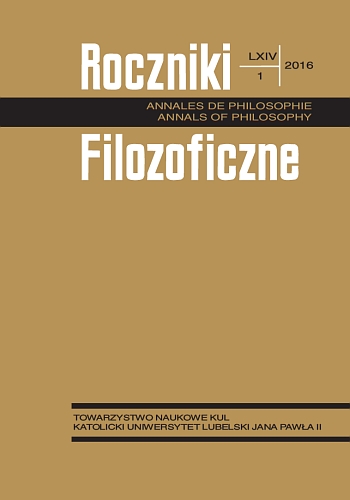Thomas Hobbes w interpretacji Lesliego Stephena a brytyjski agnostycyzm przełomu XIX i XX wieku
Thomas Hobbes as Interpreted by Leslie Stephen and British Agnosticism at the Turn of the 19th and the 20th Centuries
Author(s): Sylwia WilczewskaSubject(s): History of Philosophy, 19th Century Philosophy, Contemporary Philosophy
Published by: Towarzystwo Naukowe KUL & Katolicki Uniwersytet Lubelski Jana Pawła II
Keywords: Leslie Stephen; Thomas Hobbes; Herbert Spencer; Henry Longueville Mansel; Victorian agnosticism; history of agnosticism
Summary/Abstract: Leslie Stephen, one of the main representatives of Victorian agnosticism and an important Victorian historiographer, devoted much space in his works to the philosophy of Thomas Hobbes, interpreted by Stephen as a confirmed sceptic; Hobbes’ thought partially inspired Stephen’s own philosophy—especially when it comes to such problems as the role of religion and the nature of faith. An analysis of Stephen’s comparison of Hobbes to Herbert Spencer shows an analogy between two accounts of the problem of the knowledge of God: (1) that of Hobbes and Henry Longueville Mansel, a fideist, and (2) that of Herbert Spencer, an agnostic. The analysis sheds light on the modern inspirations of Victorian agnosticism and its influence on Victorian historiography.
Journal: Roczniki Filozoficzne
- Issue Year: 64/2016
- Issue No: 1
- Page Range: 75-92
- Page Count: 18
- Language: Polish

